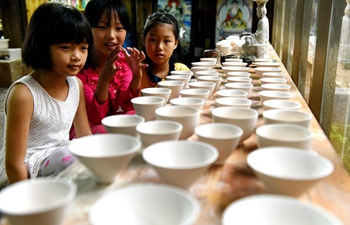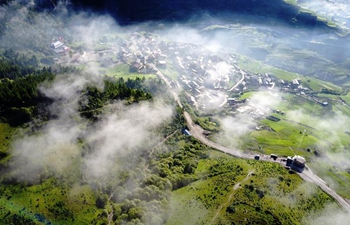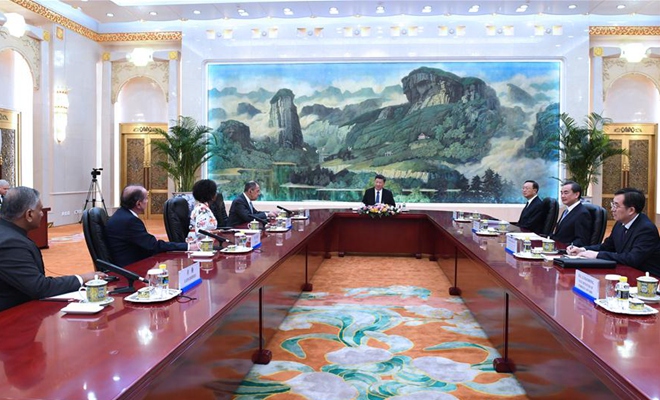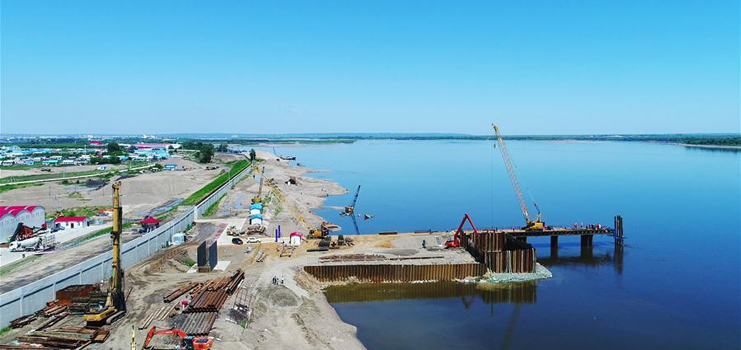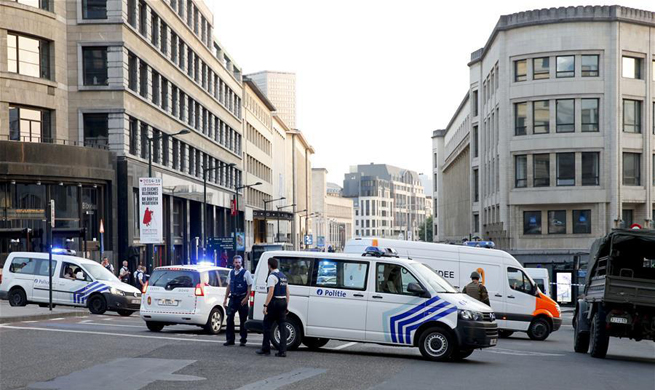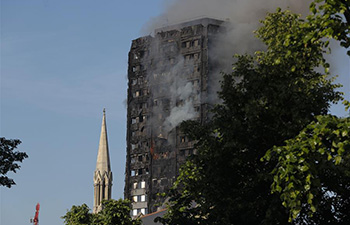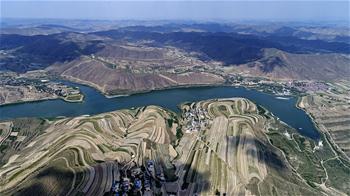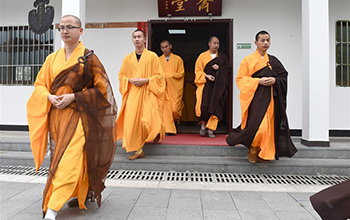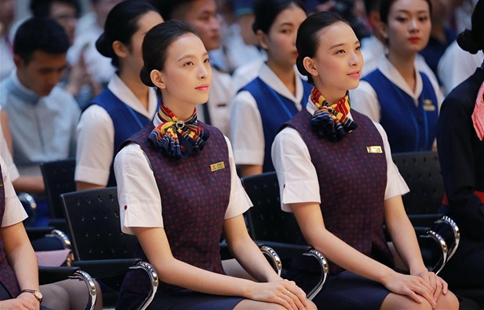by Olatunji Saliu
ABUJA, June 21 (Xinhua) -- Nigeria's humanitarian situation is still quite alarming, despite efforts by the government and international partners to abate the challenges, an official of the International Committee of the Red Cross (ICRC) said on Wednesday.
"Though the overall humanitarian response has increased since 2016, it remains inadequate and insufficient to respond to the scale and depth of the challenges," Aleksandra Matijevic, communications coordinator of the ICRC in Nigeria, told Xinhua in an exclusive interview.
"We are alarmed by the humanitarian situation, with some of the highest human costs in the world," she said.
The armed conflict in Nigeria's northeast, which has spilled over into neighboring countries, continues to create dire humanitarian needs following massive displacements of the population, Matijevic noted.
"We are very worried about the situation of the many displaced people located in areas where humanitarian aid does not reach due to the prevailing insecurity," she said.
An estimated 14 million Nigerians are currently in need of humanitarian assistance, according to data given by the United Nations High Commissioner for Refugees (UNHCR).
The six-year-old insurgency of Boko Haram had an impact on 26 million people living in the northeastern region of the country.
The 14 million people in need of humanitarian assistance are scattered across the country, especially Borno, Adamawa and Yobe - three northeast states which are the worst-hit by the Boko Haram insurgency.
This situation is being worsened by an unprecedented influx of returning refugees from neighboring countries, especially Cameroon.
Some of almost two million persons displaced from their homes had to flee more than once, and close to 80 percent of the displaced have been received by local communities that lack resources to sustain them.
The ICRC has been working with the Nigerian Red Cross Society (NRCS) toward ensuring that the most basic needs of people affected by armed conflict in hard-to-reach areas of the northeast are met, by providing food and shelter and helping to access health, water, and sanitation.
"With the help of the NRCS and other Red Cross societies in the Lake Chad Region, we have been working across the region to locate, and where possible, reunite families, offering Red Cross messages and free phone calls to separated family members," Matijevic said.
According to her, whenever feasible, the ICRC is moving from emergency food relief to greater support to livelihood initiatives for the affected communities.
The ICRC currently supports 23 state primary health care centers and three mobile clinics serving the displaced, returnees and residents in Nigeria's northeast.
Matijevic said between January and June, almost 246,000 patients attended these clinics, which saw the delivery of over 11,000 babies.
In addition to that, about 6,340 children under age 5 suffering from severe acute malnutrition received treatment in the same period.
"Two ICRC surgical teams provide care for the wounded in need of emergency surgical care in the northeast, while the ICRC trains staff of Nigerian hospitals country-wide to enhance their skills in the treatment and management of wounded patients.
"Furthermore, the ICRC also provides psycho-social support for trauma-affected victims of the armed conflict and the NRCS volunteers working to assist them," said the humanitarian aid worker.
A sustained humanitarian access is critical for keeping the food crisis in Nigeria's northeastern region from escalating, especially if the ongoing insecurity should cause new waves of displacement.
With the crisis even becoming protracted, Matijevic said the ICRC is urging Nigerian authorities for attention to the crisis to be maintained and to act now to avoid further suffering.
Part of the root causes of the suffering so far identified includes the inability of many to access their lands or fishing areas.
"The ICRC urges the concerned authorities to double their efforts to ensure that whenever possible, people can resume their livelihood activities, mostly farming, fishing, and pastoralism," she added.
In response to the crises, the Nigerian government said it will unveil a national integrated framework for refugees, migrants and internally displaced persons by September.
Acting president Yemi Osinbajo said the new approach would be a shift from relief dependent measures to real and measurable durable solution strategies.
Osinbajo said the framework of intervention is a demonstration of commitments of the Nigerian government toward a more responsive, radical and creative approach in providing durable solutions for the humanitarian situation.




